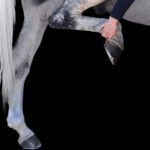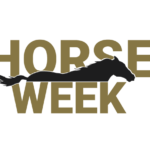June 24, 2002 — The United States has an arcane tax system, and even the web site of the IRS is extraordinarily complicated to navigate. Do you know anyone who has taken advantage of the “electronic tax return” system offered on the IRS web site?
Tax laws allow anyone to take advantage of what the law says. If there are so-called “loopholes,” attorneys will advise taxpayers accordingly. The IRS writes regulations that not only allow this, but also gives signposts in a perfectly clear road map, so that it is perfectly appropriate to do what the law provides. Any proper strategy to decrease taxes should not be criticized when the taxpayer uses lawful means that are also ethical means to reduce taxes. Companies should not be criticized for using legal means to reduce taxes, and it is the duty of a corporate tax attorney to take advantage of all lawful means to decrease tax liability for the sake of maximization of shareholder profits.
Sometimes the IRS goes after relatively small tax matters, for the sake or principle. For instance, just recently the IRS issued a deficiency notice to Richard Cramer, of Las Vegas, Nevada, an entrepreneur who operated a local automobile dealer. [Cramer v. IRS, 2000 RIA TC Memo 2000-229.]
The taxpayer bred paint horses and he was a member of the American Paint Horse Association. He had no expertise in raising horses except that he was raised on a farm and had some experience in breaking horses. He purchased his first horse in l995 and later acquired other horses. The IRS audited him for only one year, l996, when he was in the early startup phase of the activity, at which time he had five horses kept at a boarding facility.
The taxpayer said that he expected to earn income from the breeding of these animals, but he had no monetary awards from participating in the horse shows. Unfortunately, the taxpayer represented himself in Tax Court without legal counsel, and he failed to show any evidence of what success he established or achievements he attained in the participation of his horses in shows. This is one of the most important features of anyone?s case?-because as we all know the showing of horses is essential to establish a marketplace interest what you are selling.
I find this case peculiar because the petitioner actually made a profit in one year (a small one, of $829), and then terminated the activity because his creditors foreclosed on the horses. The taxpayer was truly unable to subsidize a losing venture because of downturns in his automotive business. He still lost this case, apparently because he could not afford an attorney to emphasize the positive facts.
The Tax Court judge found that Mr. Cramer did not maintain books and records of his activity in a businesslike manner. He actually did not have any bank account, but dealt with all transactions in cash. This must have seemed extraordinarily odd to the judge.
The court felt that his profit objective was not bona fide. The court said, “the activity was not conducted in a businesslike manner. The petitioner was deeply interested in the activity, and his motivation appears to have been primarily his love for horses. Petitioner had no formal or informal business plan and did not show that he sought the advice of experts on how to conduct the activity on a profitable basis.”
In addition, the court found that he failed to present any evidence that might show how much time he was engaged in the activity. He was a full time employee at a car dealership. The court said: “There is no indication in the record that petitioner undertook this activity for any purposes other than his love for horses. Petitioner has not satisfied the Court that he had a good faith primary objective of making a profit from his activity.”
On top of this, the court said that his expenses were not substantiated, which would automatically, in any case, present a very bad impression.
Recently it has been in the news that companies have taken advantage of new techniques, such as offshore tax havens, to obtain deep tax cuts. A key to this method has been to set up a paper company in a third country that has a tax treaty with the United States, such as Barbados or Luxembourg, allowing companies to move large amounts of money to an overseas parent company and to reclassify these formerly taxable profits as deductions.
For instance, profits made by an American firm can be wired abroad tax free in the form of royalties for using the company?s logo, the rights to which are owned by the overseas parent. Another example involves the overseas parent lending money to the American operation, which uses its United States profits to pay interest, for which it takes a deduction. The overseas parent can also charge management fees for services provided to its American “subsidiary,” and be paid from once-taxable profits.
Horse owners do not normally have the sophisticated tax benefits of corporations that divert income to offshore tax havens. However, the tax laws are clearly written to protect horse owners so that they can carry on a business, with the expectation of making a profit, even though it may take a number of years until that goal is achieved. It is unfortunate that the IRS has been misguided to choose cases such as that mentioned above involving Richard Cramer, who was barely in the startup phase of the activity, and who hardly was taking advantage of tax benefits but indeed had to abandon the activity because he could no longer afford to sustain the losses.
John Alan Cohan is a lawyer who has served the horse industry since 1981. He serves clients in all 50 states, and can be reached by telephone at (310) 557-9900 or via e-mail at johnalancohan@aol.com.





